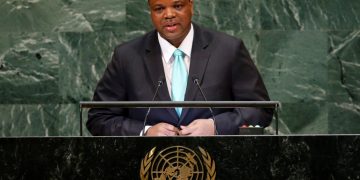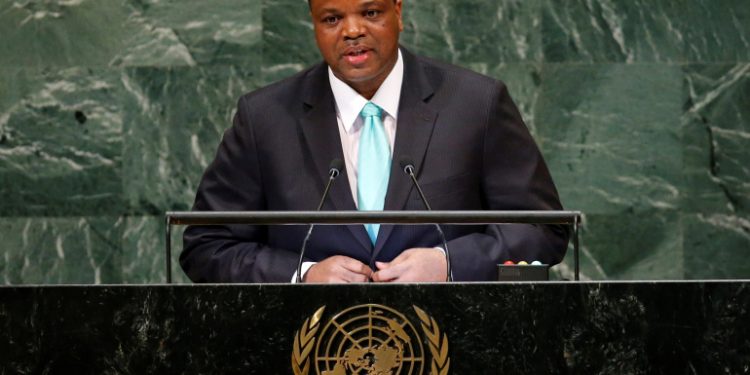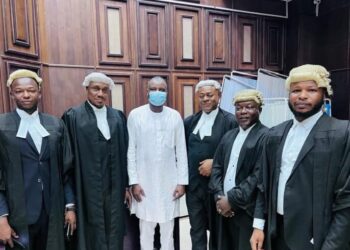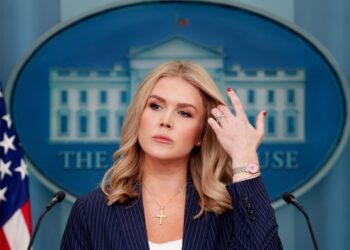By John Ikani
A dusk-to-dawn curfew has been imposed in Eswatini as soldiers were deployed to suppress protests.
However, the government cited rising coronavirus cases as it imposed a 6 pm to 5 am curfew.
Eswatini, a small landlocked state formerly called Swaziland, is the last country in Africa with absolute monarchy.
Protests are rare in Eswatini, Political parties are legally banned, but recent weeks have seen violent demonstrations in parts of the country, with the opposition reporting scores of people injured, many hospitalized.
The protest was sparked by Pro-democracy activists in Eswatini, who have vowed to intensify demonstrations against the monarchy until it makes democratic reforms and unbans all opposition parties.
The demonstrators alleged that King Mswati III, Africa’s last remaining absolute monarch who has ruled the country for more than three decades, is running a repressive government and violating human rights.
According to human rights groups, the king’s family, including 15 wives, is accused of enjoying a lavish lifestyle leaving most of the country’s 1.1 million people impoverished.
Political parties were banned in the country in 1973 and are barred from participating in parliamentary elections.
Issuing a statement, Sakhile Nxumalo of the Swaziland Youth Congress, which is involved in the demonstrations, said they are demanding a democratic government that will serve the interests of the people.
“People want a democratic government where they can elect their own leaders, in particular, they want a republic so that the country can be led by a president,” said Nxumalo.
There was a report that the king had fled from his kingdom but the Eswatini government on Tuesday denied the claims that the king had fled the country.
The acting Prime Minister Themba Masuku said in a statement that “The events of the past few days have been quite alarming and upsetting,”
“We have witnessed violence in several parts of the country perpetuated by an unruly crowd where people have been attacked, property destroyed,” he added.
He said “security forces are on the ground to maintain law and order”.
Witnesses in the two capitals Manzini and Mbabane reported seeing soldiers patrolling the streets where protesters have been burning
tyres and stoning cars.
A Manzini resident told AFP she and colleagues were stranded in the restaurant where they worked and were unable to return home.
“Helicopters are extinguishing the fires lit on the roads,” she said, asking to be anonymous.
People had been looting a furniture store and on Monday some shops were burned down, she said.
Shops were ransacked and torched overnight in Matsapha, an industrial hub on the western edge of Manzini, according to several sources.
“The military is on the streets,” Lucky Lukhele, spokesman for the pro-democracy grouping Swaziland Solidarity Network, told AFP.
“Yesterday was the worst night ever, where a young man was shot point-blank by the army, and some are in hospital as we speak,” Lukhele charged.




































